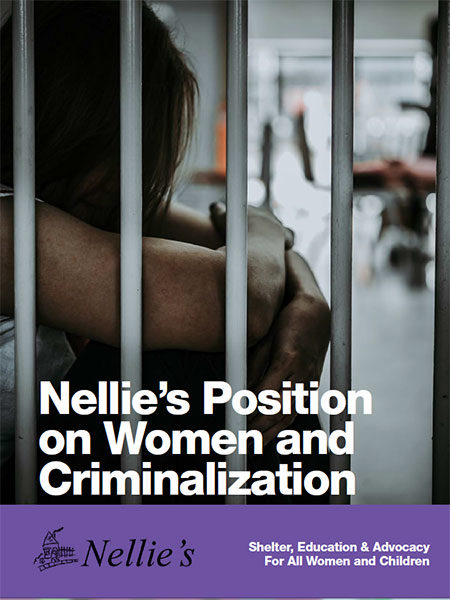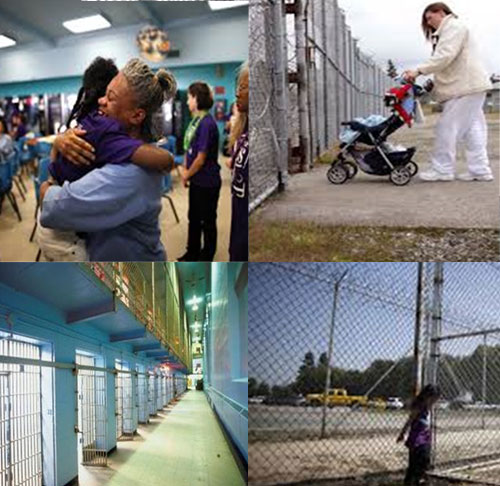
In domestic violence situations, a disproportionate number of women who were reporting violence against them, instead have found themselves facing criminal charges. At Nellie’s we recognize and understand that the criminalization of women is not just the process of experiencing arrest, coming into the contact with the law, criminal convictions or incarceration, but that it is a systemic targeting of oppressed and marginalized people.
“In domestic situations, criminalization is a big problem,” says Anita Nathan, a criminal defence lawyer and a community member of Nellie’s Social Justice and Accessibility Committee. “I’ve personally represented a number of women who have been charged with domestic assault even though they themselves have been the victim for years.”
Anita has been a member of the Social Justice and Accessibility Committee since early 2018. She grew up in poverty, having fled to Canada from Sri Lanka with her family during the civil war, and always wanted to give back to the greater community.
“I wanted to do something fulfilling with my career and I wanted to be able to give back to my community by sharing my knowledge,” says Anita.
Anita, along with her committee colleague, Caitlin Smith, spent their spare time during the summer of 2019 creating the Women and Criminalization fact sheet on social justice and accessibility related issues for use by Nellie’s board members and staff. The Women and Criminalization fact sheet summarizes Nellie’s Position Paper on Women and Criminalization, which was originally released in 2018.The purpose of creating the fact sheet version was to distill the vast amount of information into an easily accessible and succinct version.
“When Nellie’s has to make any sort of statement or media comment, this information is now at our fingertips. We don’t have to go and collect, and look for, the data,” says Anita, adding that being able to do so will aid Nellie’s in its advocacy efforts.
An excerpt from the fact sheet
Nellie’s recognizes the process of criminalization as traumatic, especially to women who have already been traumatized by violence against women (VAW) and other interlocking systems of oppression. Nellie’s recognizes that there are intersections that greatly increase the risk of criminalization of women, which include:
- Women who use drugs
- Women who are in poverty
- Indigenous women
- Black women
- Women who do sex work
- Women with mental health concerns
- Trans, Genderqueer and Non-Binary folks
- Women experiencing violence
Nellie’s advocates for decriminalization and transformative justice that does not rely on increased law enforcement. We adhere to a social justice approach that aims to prevent and divert women from becoming criminalized. We recognize the barriers within the legal and correctional systems, as well as the barriers women face upon release, as further traumatizing women and preventing women from accessing the support they need.
Read the Women and Criminalization fact sheet.
Read Nellie’s Position Paper on Women and Criminalization.





